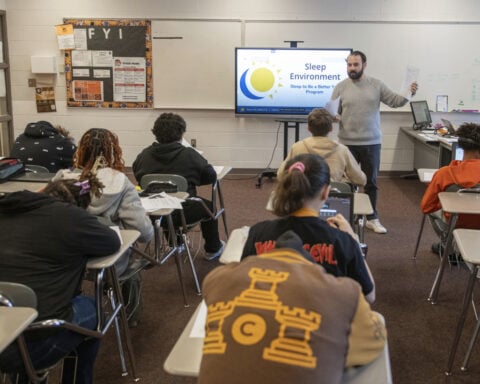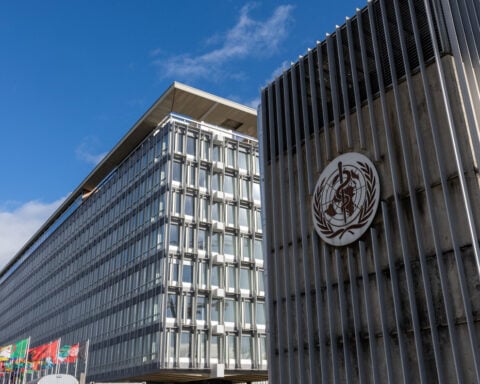A cancer diagnosis brings hard choices, but many young patients never learn about one critical decision: the chance to have children after treatment.
According to new research published in JAMA Network Open, half of patients who were of reproductive age, when diagnosed, say their doctors never gave cancer fertility counseling before starting treatment.
These results were based on the study conducted on 473 cancer patients. 49% of the respondents reported that they were not told about options to preserve their fertility before starting treatment. The research raises concerns about gaps in patient care as cancer rates rise among younger Americans.
“A growing population of early-onset cancer survivors have different needs from older patients,” said Andreana Holowatyj, who led this research at Vanderbilt University Medical Center. Holowatyj, an assistant professor of medicine and cancer biology, pointed to fertility and sexual health as key concerns that need more attention.
The study looked at cancer patients diagnosed between 2013 and 2021, with men aged 18 to 49 and women aged 18 to 42 at diagnosis. It found stark differences in who received fertility counseling based on factors like age, marital status, and cancer type.
Testicular cancer patients reported the highest rate of fertility discussions at 96%, while only 3.6% of thyroid cancer patients said they had these conversations. Other cancers showed varying rates: breast cancer at 71%, endometrial or uterine cancer at 70%, cervical cancer at 55%, and both ovarian and lung cancers at 21%.
Age emerged as a crucial factor. Patients who received fertility counseling had a median age of 33, while those who did not were typically older, with a median age of 38. The data showed married patients and those who had been pregnant were less likely to have these discussions with their doctors.
“We might be making unfair assumptions about who wants to preserve their fertility,” said Dr. Arif Kamal, chief patient officer of the American Cancer Society, who was not involved in the study. “If a woman already has children or is older, we cannot presume she does not want different options after treatment.”
Male and female reproductive cancers reflect broader challenges in fertility preservation. For men with testicular cancer, which often strikes in their 20s, preserving fertility is straightforward, which involves sperm banking.

Women face more complex choices. Dr. Elizabeth Suh-Burgmann, who chairs gynecologic oncology for Kaiser Permanente’s Northern California region, explained that female fertility preservation requires more invasive procedures like egg or embryo freezing. These steps can delay cancer treatment, yet she noted that “for patients prioritizing future fertility, the benefits usually outweigh potential risks of treatment delays.”
The findings carry special weight because young cancer patients are not rare. One in 10 cancer diagnoses in the United States occurs in people of reproductive age. This reality prompted the American Society of Clinical Oncology to recommend fertility discussions for all reproductive-age patients starting cancer treatment.
Yet studies consistently show most patients either receive insufficient information about treatment-related infertility or none at all. While the new research noted some patients might have forgotten these conversations, oncologists say forgotten discussions likely were not emphasized enough.
“This points to a broader issue in caring for younger cancer patients,” said Kamal, who also works as an oncologist at Duke Cancer Center. “When doctors discuss fertility preferences, they are more likely to address other concerns specific to younger patients.”
The type of cancer also influences these discussions. Thyroid cancer patients reported the lowest rate of fertility counseling, but Dr. Suh-Burgmann explained this might reflect treatment methods. Common thyroid cancer treatments like surgery or targeted radiation typically do not affect reproduction long-term.
Dr. Laurie McKenzie, a reproductive specialist at the University of Texas MD Anderson Cancer Center, stressed that fertility discussions matter beyond preservation options. “These conversations give patients control over their future when they feel powerless,” she said.
At Memorial Sloan Kettering Cancer Center, research on young breast cancer patients revealed deeper motivations for fertility preservation. Dr. Shari Goldfarb, who directs the Young Women with Breast Cancer Program, found many patients viewed these choices as vital to their recovery mindset. “They often tell us, ‘I wanted to have hope, I wanted to feel like I was going to have a future,’” Goldfarb said.

 Trump has begun another trade war. Here's a timeline of how we got here
Trump has begun another trade war. Here's a timeline of how we got here
 Canada's leader laments lost friendship with US in town that sheltered stranded Americans after 9/11
Canada's leader laments lost friendship with US in town that sheltered stranded Americans after 9/11
 Chinese EV giant BYD's fourth-quarter profit leaps 73%
Chinese EV giant BYD's fourth-quarter profit leaps 73%
 You're an American in another land? Prepare to talk about the why and how of Trump 2.0
You're an American in another land? Prepare to talk about the why and how of Trump 2.0
 Chalk talk: Star power, top teams and No. 5 seeds headline the women's March Madness Sweet 16
Chalk talk: Star power, top teams and No. 5 seeds headline the women's March Madness Sweet 16
 Purdue returns to Sweet 16 with 76-62 win over McNeese in March Madness
Purdue returns to Sweet 16 with 76-62 win over McNeese in March Madness








